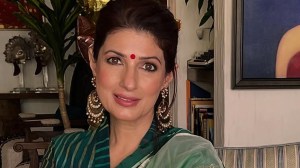Explained: Delhi govt’s proposal on nursery admission, and the response
Nursery and kindergarten are meant for children to learn to interact with the outside world independently. But with classes moving online due to Covid-19, should children begin schooling so early?
 Kindergarten students at a school in Delhi. (Express Photo: Abhinav Saha, File)
Kindergarten students at a school in Delhi. (Express Photo: Abhinav Saha, File)The nursery admission process in Delhi, regulated by the government, is yet to start. This is because there is no clarity on when, if at all, admission for children who turn 3 years old in or before March 2021 will begin. The pandemic is the main reason behind the delay.
What is the Delhi government’s proposal on nursery admission?
The government is discussing a proposal to postpone for a year admissions for the upcoming academic session — 2021-22. This essentially means that no admissions will take place this year, and there will be no nursery section in city schools.
The proposal is to begin admissions for nursery and kindergarten after a number of children and parents are vaccinated for Covid-19.
What is the rationale behind the move?
The idea is to give parents as well as children a breather as, having kids as young as 3 attend online classes is an arduous task. At present, the students who took admission in nursery in 2020 have been attending classes online and have no interaction with school staff or classmates — officials believe this is less than ideal for a child.
According to the admission policy in the city, a child below the age of 3 cannot be admitted to school. Not all schools have nursery and some start admitting children in kindergarten, when they turn 4-years-old. In many government schools, the entry level is Class 1, when a child is at least 5 years old.
Nursery and kindergarten, across schools, are meant for children to learn to interact with the outside world independently, and learn basics such as holding a pencil, drawing, and writing alphabets and numbers.
How accepting are schools of the government’s proposal?
Educators have several apprehensions over the proposal. They worry they will suddenly have two sets of children in 2022 to take care of, who have never been to school before and have had very minimal interaction with anyone apart from their immediate family members.
Teachers also have concerns regarding the financial aspect, as they will not get any revenue from new admissions this year.
With the government having slashed school fees during the pandemic, many schools have also cut salaries of teachers. Teachers fear that if there are no nursery admissions this year, a lot of them could be out of jobs for at least a year.
How are nursery admissions conducted in Delhi?
Nursery admissions have always been a very competitive space in Delhi, so much so that movies have been made on the race to get into the “best” schools. Thousands of parents “compete” to have their children study in the top 50 schools.
Before the Right to Education Act was passed and implemented in 2010, schools would interview and test students as well as parents. Many schools based admissions on the educational qualification of parents, while some even preferred those who were teetotallers or vegetarians.
After the RTE was passed, there were strict curbs on testing children or basing their admission on their parents’ qualifications or other attributes. Since then, the most common admission criteria has been the distance of the child’s home from school; whether a sibling studies in the same school; and whether parents are alumni of the same school. Selection is done through a draw of lots. All private schools are also required to set aside 25 per cent seats for students from economically weaker sections.


- 01
- 02
- 03
- 04
- 05




































